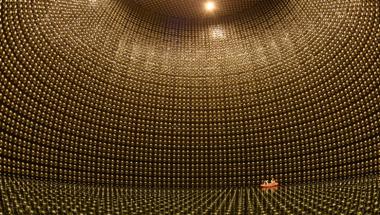
Dr Daniel Cookman
Postdoctoral Research Associate
Research interests
- Physics
Contact details
Biography
Dr Daniel Cookman is a Postdoctoral Research Associate in the Experimental Particle & Astroparticle Physics group within the Department of Physics of King’s College London. He works on the SNO+ experiment, an 800-tonne liquid scintillator neutrino detector based in the SNOLAB laboratory 2km underground in Sudbury, Canada. He is also beginning to work on radio-assay work in preparation for the building of the LEGEND-1000 experiment. He began working at King’s College London in 2023.
Dr Cookman received his MPhys (Physics) degree from the University of Manchester in 2019. Following this, he received his DPhil in Particle Physics from the University of Oxford in 2024, where he began his work on the SNO+ neutrino experiment.
Research
- Neutrino oscillations
- Neutrinoless double beta decay
- Optical calibration of liquid scintillator detectors
- Background modelling in rare-search experiments
Daniel’s research currently focuses on two major areas in the frontier of particle physics: neutrino oscillations and neutrinoless double beta decay. Measurements of neutrino oscillations demonstrated that neutrinos must have mass; however, the theoretical mechanism for them having mass has not yet been demonstrated. The most popular theory for giving neutrinos mass is for them to be so-called “Majorana particles”, whereby neutrinos would be their own antiparticle. A testable consequence of this theory is the existence of the ultra-rare neutrinoless double beta decay.
In order to make these measurements, a very precise knowledge of large neutrino detectors are required. Daniel works on both the calibration of the optical model for the SNO+ detector, as well as the background models for SNO+ and LEGEND-1000.
Research

Experimental Particle & Astroparticle Physics
The aim of the EPAP group is to address some of the major open questions in our understanding of matter through the study of the nature of fundamental particles
Research

Experimental Particle & Astroparticle Physics
The aim of the EPAP group is to address some of the major open questions in our understanding of matter through the study of the nature of fundamental particles
